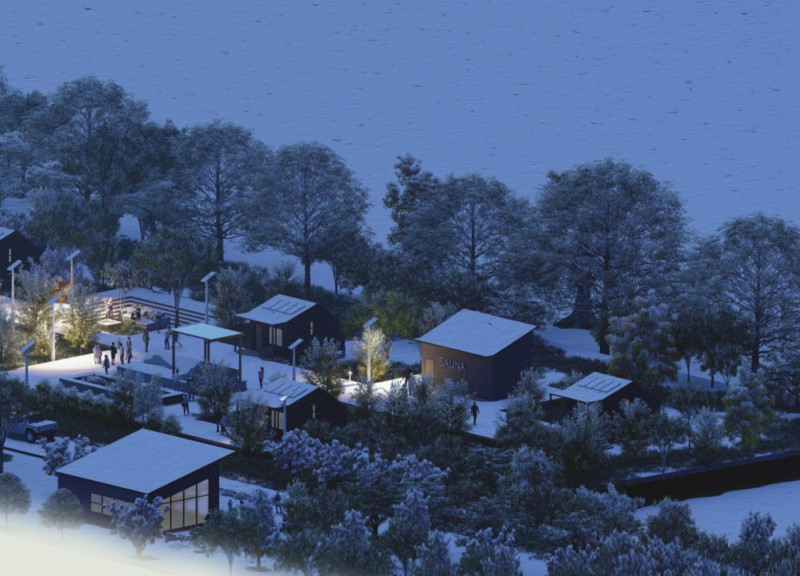5 key facts about this project
In the heart of Skrunda, Latvia, the Inspire Venta traveller rooms project offers a thoughtful design that sits alongside the Venta River. It aims to enhance the visitor experience by bringing together modern elements with traditional influences. The primary goal is to create a comfortable space for guests, encouraging their connection to nature while promoting opportunities for community interaction.
Design Concept
The design focuses on finding a balance between privacy and communal living. The cabins are raised off the ground, providing guests a sense of seclusion while also allowing for views of the natural surroundings. Careful planning keeps private sleeping areas separate from shared facilities, which fosters engagement without compromising comfort.
Material Selection
Timber is the main material used in building the traveller rooms. This choice reflects local construction traditions and supports sustainable practices. Each cabin measures 20 square meters and contains essential spaces, including a small kitchen, a living area, a sleeping area for two, and a bathroom equipped with a composting toilet designed to reduce water usage.
Sustainability Features
Solar panels on each cabin generate energy for lighting and small appliances, aligning with the focus on environmental responsibility. The landscape design includes green spaces, agricultural areas, and native plantings. These choices not only enhance the visual appeal of the site but also support local wildlife and biodiversity.
Community Integration
The project includes a restaurant, small shop, communal kitchen, playground, and tennis court to create a sense of community among visitors. Social facilities are thoughtfully placed for easy access while preserving the privacy of the cabins. Camping areas promote outdoor activities, enriching guests' experiences and connecting them with the landscape.
Each traveller room features a raised platform that allows for views of the river and surrounding fields. This design element fosters a connection to the environment and reflects a commitment to providing an immersive experience for every guest.





















































